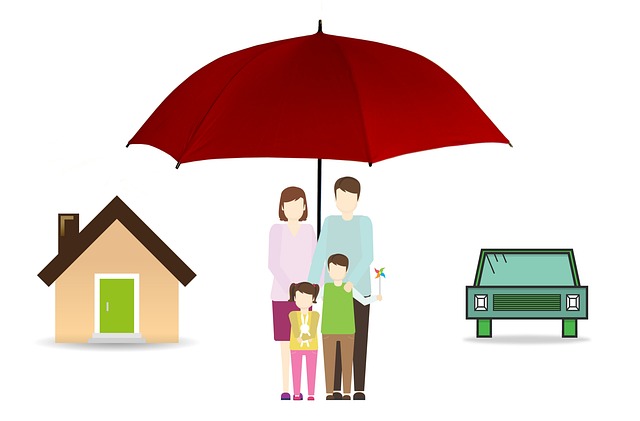Exploring Careers in Early Childhood Education
Discover the diverse world of early childhood education careers. This comprehensive guide explores various roles, required qualifications, and professional growth opportunities in the field. Whether you're a newcomer or seasoned professional, gain valuable insights to navigate your career path in nurturing young minds.

A Comprehensive Look at Early Childhood Education Careers
Diverse Roles in Early Childhood Education
The field of early childhood education (ECE) offers a variety of career paths, each focusing on different aspects of child development and care:
-
Infant and Toddler Specialists: Focus on the crucial early years, supporting cognitive and emotional growth.
-
Early Learning Educators: Guide preschool-aged children through structured learning experiences.
-
In-Home Child Care Providers: Offer personalized care within family settings.
-
Cultural Exchange Caregivers: Combine childcare with international experience.
-
Extended Day Program Leaders: Engage school-age children in enriching after-school activities.
-
Inclusive Education Specialists: Support children with diverse needs and abilities.
These roles vary in their work environments, schedules, and specific responsibilities, catering to different preferences and skill sets within the ECE field.
Essential Qualifications for ECE Professionals
While requirements may vary by position and location, common qualifications in early childhood education include:
-
Educational Background: Ranging from high school diplomas to advanced degrees in child development or related fields.
-
Professional Certifications: Such as the Child Development Associate (CDA) credential, often preferred or required.
-
Health and Safety Training: Current certification in pediatric first aid and CPR is typically mandatory.
-
Clean Background Check: Essential for ensuring child safety and meeting regulatory requirements.
-
Relevant Experience: Prior work with children is often valued by employers.
-
Interpersonal Skills: Patience, effective communication, creativity, and adaptability are crucial.
Building Experience in Early Childhood Education
Aspiring ECE professionals can gain valuable experience through various avenues:
-
Community Service: Volunteer at local youth organizations or educational centers.
-
Informal Caregiving: Offer childcare services to family and community members.
-
Educational Internships: Participate in structured learning experiences at childcare facilities.
-
Seasonal Work: Engage in summer camp programs or holiday care services.
-
Academic Opportunities: Explore work-study options in university childcare centers.
-
Entry-Level Positions: Seek assistant or trainee roles in established ECE settings.
These experiences not only enhance skills but also demonstrate commitment to the field, strengthening future career prospects.
Core Responsibilities in Early Childhood Education
ECE professionals are entrusted with numerous responsibilities to foster child development and ensure well-being:
-
Creating Safe Environments: Maintain vigilant supervision and adhere to safety protocols.
-
Curriculum Implementation: Design and execute age-appropriate learning activities.
-
Basic Care Provision: Assist with essential needs like nutrition and hygiene.
-
Maintaining Learning Spaces: Ensure clean, organized, and stimulating environments.
-
Family Collaboration: Maintain open communication with parents and guardians.
-
Regulatory Compliance: Adhere to industry standards and institutional policies.
-
Developmental Monitoring: Track and document children’s progress and milestones.
-
Positive Guidance: Foster social-emotional development and manage group dynamics.
Career Advancement in Early Childhood Education
The ECE field offers various pathways for professional growth:
-
Instructional Leadership: Progress to senior teaching or mentoring roles.
-
Administrative Roles: Move into management positions within educational institutions.
-
Quality Improvement: Become a consultant to enhance ECE programs and practices.
-
Curriculum Development: Specialize in creating educational content and training materials.
-
Family Services: Transition to roles supporting holistic child and family well-being.
-
Specialized Care: Develop expertise in supporting children in unique settings, such as healthcare facilities.
Advancement often requires ongoing education, additional certifications, and accumulated experience. Many professionals pursue higher education in ECE or related disciplines to qualify for advanced positions.
Professional Development in Early Childhood Education
To enhance your career prospects in ECE:
-
Refine Your Professional Profile: Highlight relevant experiences and qualifications in your resume.
-
Articulate Your Passion: Craft compelling cover letters that showcase your dedication to child development.
-
Network Effectively: Engage with ECE communities through conferences, workshops, and online forums.
-
Prepare for Opportunities: Research common interview questions and practice articulating your approach to early childhood education.
-
Stay Informed: Keep abreast of current trends and best practices in child development and education.
-
Build a Professional Network: Cultivate relationships with mentors and colleagues in the field.
-
Present Yourself Professionally: Maintain a polished appearance and follow-up etiquette in all interactions.
-
Pursue Ongoing Education: Consider additional certifications or advanced degrees to expand your expertise.
-
Demonstrate Adaptability: Show willingness to work with various age groups and in different educational settings.
-
Emphasize Soft Skills: Highlight your ability to communicate effectively, solve problems creatively, and work collaboratively.
By focusing on continuous improvement and staying passionate about child development, you can build a fulfilling career in early childhood education. Remember that working in this field requires dedication, empathy, and a genuine commitment to shaping young lives. With the right approach and ongoing professional development, you can make a lasting impact on children, families, and the broader educational community.




